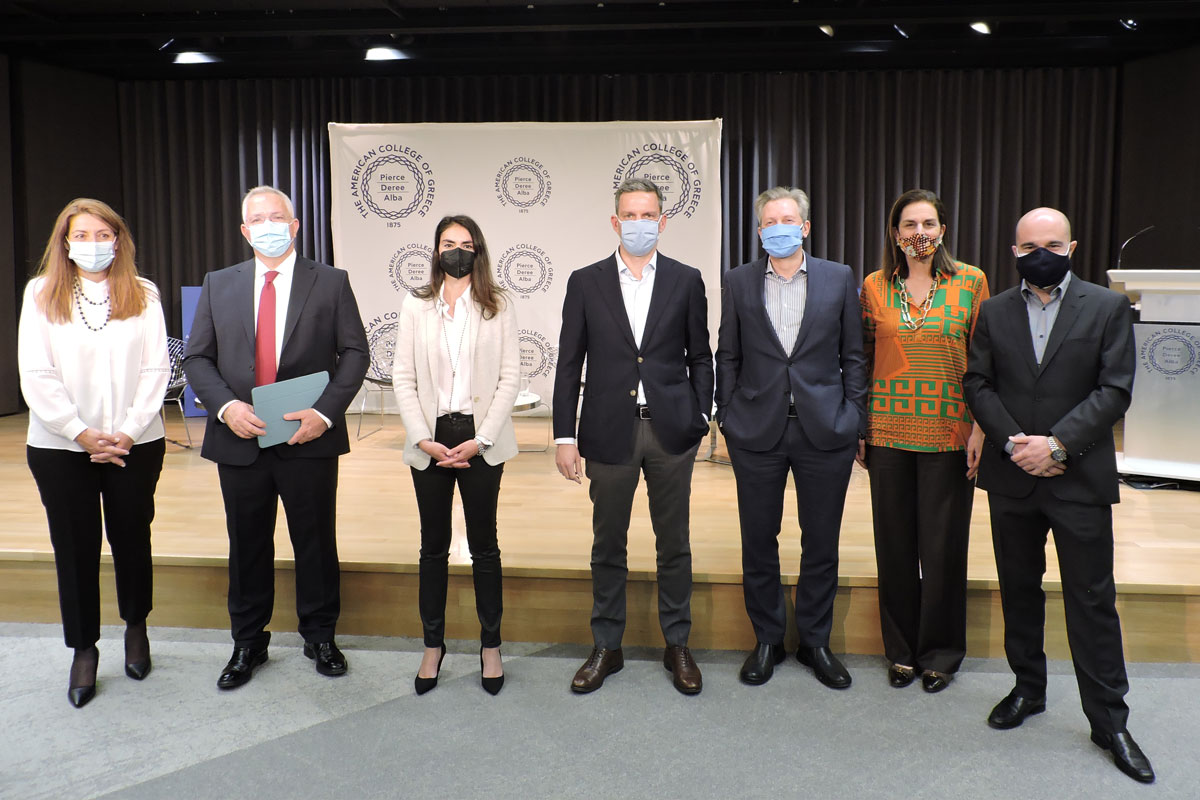
The Heads of OTE Group, Microsoft and Mondelēz International shared their points of view in an engaging ACG150 event
The role of leadership in the successful implementation of digital transformation was at the center of the panel discussion organized by the ACG Institute for Hellenic Growth and Prosperity and the Office of Public Affairs of the American College of Greece under the title “Digital Leadership is Not Just Digital”. Held in the framework of the ACG150 plan, the event brought together three business leaders with distinct and overarching perspectives on how technology cuts across almost every industry: Katerina Vlachou, Managing Director of Mondelēz International for Greece and Cyprus and Deree and Alba Graduate Business School alumna, Michael Tsamaz, Chairman & CEO of OTE Group and Theodosis Michalopoulos, CEO of Microsoft Greece, Cyprus & Malta and Alba Graduate Business School alumnus. Moderated by Joanna Konstantinou, Associate Lecturer II at the MIS Department of the School of Business and Economics of Deree-ACG and Digital Leadership Coach, the three leaders shared their points of view on how the digital age requires the leadership “handbook” to be re-written.
As Katerina Vlachou explained, leadership in the era of digital transformation is crucial, as leaders are there to develop the growth mindset within the company and make the corporate culture evolve throughout the transformation process. According to the Managing Director of Mondelēz International Greece & Cyprus, the digital transformation’s impact is huge throughout any organization: It is shaping the way the company redefines the talents, skills and capabilities needed on board, it determines the ways to attract, retain and allocate the talent and also to train current employees to adapt to developments. In addition, digital transformation taps on the organizational schemes, moving from typical hierarchies to more agile teams that operate trans-functionally. The new digital era leads to more engagement of employees, automation of activities and reallocation of resources in a more efficient way, and thus, to a change of culture. To make it happen, leaders need to have a clear strategic vision and share it with employees – and proximity with the entire team within the organization plays a vital role in this direction. Digitalization and remote working create a bigger pool of talent and allow for the export of talent to central teams across borders. Employees that become part of central teams while based in their country of origin are the best ambassadors for the country and the local team, with a possible positive impact at a macrolevel. Flexible workplace and collaboration are, according to Ms. Vlachou, two key terms in the new landscape formed by digital transformation.
Read the full story here
